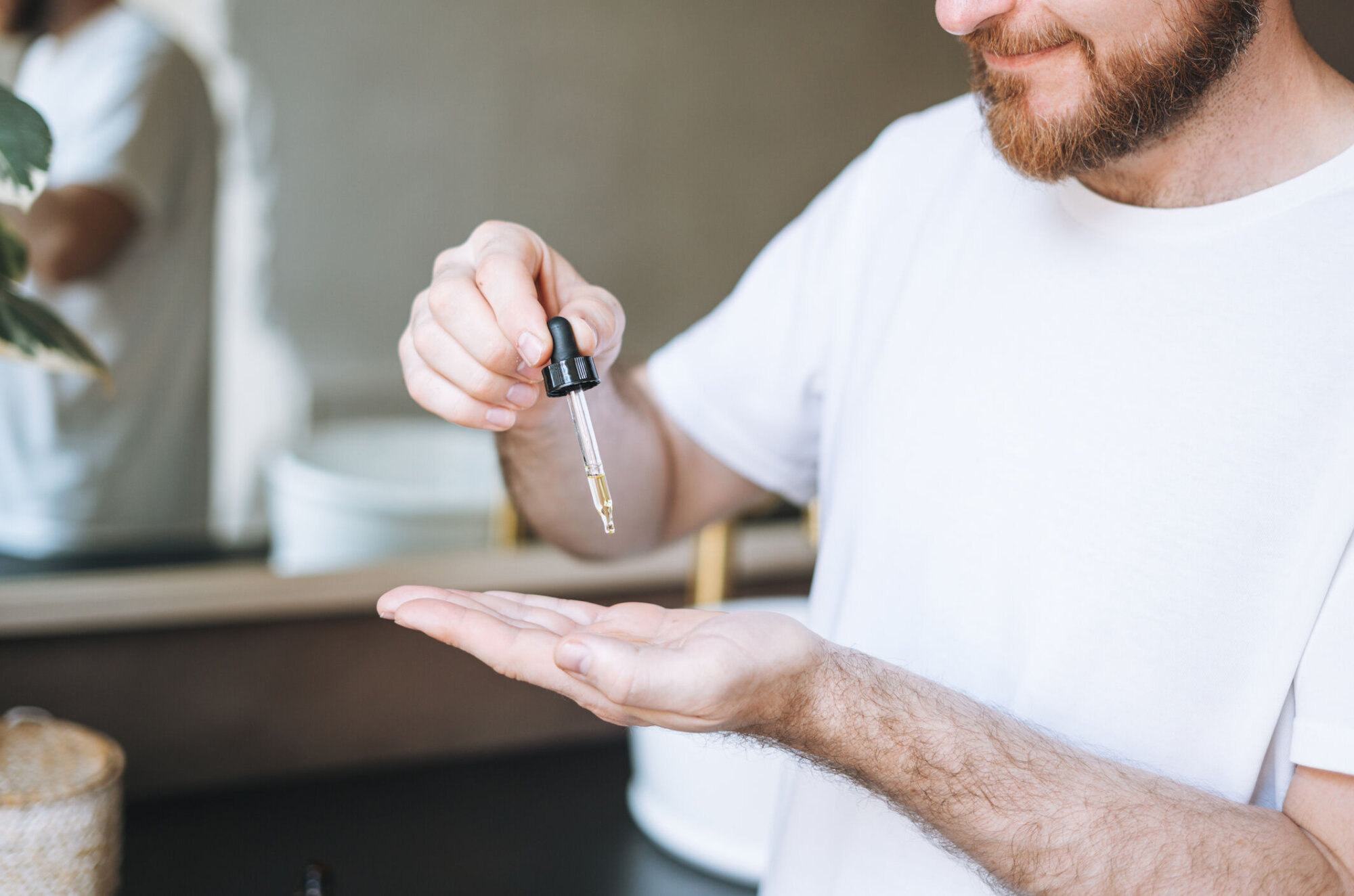Skin care is a billion-dollar industry, with a global market that is expected to reach $177 billion by 2025. U.S. consumers led the way in 2020, spending $17.6 billion, according to Statista. While skin care targeting women have the bigger slice, men’s skin care has been taking a piece of the pie.
Michael Gilman, founder of the Grooming Lounge, a source for men’s grooming products and advice that has branches in D.C. and Virginia, has seen it happen over the more than 20 years he’s been in business.
“It’s become much more mainstream for guys to take care of themselves beyond just shaving or brushing their hair or teeth. It’s just part of the culture now that guys do that, which is certainly good for people in our business,” Gilman said.
It wasn’t always that way.
“When we started, we always felt like any guy who cleans his face with a different bar soap that he uses to (clean) everything else, that’s the great skin care regimen for our guys. You know, the guy who’s not wiping clean his butt with the same bar soap that he cleans his face with — like, that’s progress,” said Gilman.
Paul, 71, who lives in Virginia, has been going to the Grooming Lounge for several years. He said the services he gets, including a getting a facial or a waxing, were things guys did not do when he was growing up.
“It makes you feel self-conscious as a youth,” he said.
But as he grew older, “hair grows where you don’t want” and appearance is how people recognize you, Paul said.
A market growth report from Insight Partners found an increasing awareness among men regarding skin care, hygiene and grooming, and it’s driving demand for skin care products worldwide.
“The average modern man is becoming increasingly desirous about caring for his skin, thereby encouraging many skin care product manufacturers to enter the men’s category,” a summary of the report said.
A 2022 study by market research company Ipsos found that it’s starting to grow beyond just basic skin care, especially among the younger generation.
Overall, 15% of heterosexual men 18—65 in the U.S. currently use male cosmetics and makeup, and an additional 17% would consider using them in the future, Ipsos said. Roughly one-third of all men are open to using cosmetics (73% of males 51 and over said they would not consider using any cosmetics, versus only 37% of males 18—34). And, males 18—34 are more open to using products like BB/CC Creams, mascara, foundation, bronzer and concealer.
That’s led to makeup and skin care products aimed toward men, such as War Paint and Stryx, and even established brands are featuring makeup that features male models.
‘Low-maintenance’ way to care for men’s skin
The bestselling products in the U.S. in 2020, according to research marketing company Statista, were facial cleanser and acne treatment — two products Kaiser Permanente dermatologist Dr. Tola Oyesanya recommended that men should have in their skin care regimen.
Oyesanya, who practices in the D.C. area, said that men are oftentimes more “low-maintenance” and not as interested in doing much with skin care.
“What I recommend for men are simpler, fewer steps,” Oyesanya said, while adding a step depending on concerns, such as razor bumps, acne or pigmentary issues.
She said to start with a cleanser, such as one that has benzoyl peroxide or salicylic acid. If that’s irritating for the skin, then a gentle cleanser. She also recommended staying away from those with fragrance or dye because “that can be irritating to the skin.”
Gilman said to wash your face with a “targeted facial cleanser” that is gentle for the skin on your face and can also help with issues, such as ingrown hairs, razor bumps and shaving-related complications — not a body wash, which, Gilman said, tends to be a little harsher.
Gilman also recommended using a scrub. “Something to get all the real dug-in dirt and grime and also to uplift those ingrown hairs and help with acne,” he said.
Oyesanya said that if acne is a problem, topical retinoids, such as Retin-A, may be used to exfoliate the top layer of the skin, and to treat and prevent acne and unclog pores. Those exfoliants are more chemical rather than mechanical.
“I always recommend a cream like a topical retinol, rather than scrubbing your skin with something abrasive, because that’s sometimes too irritating,” she said.
And lastly, use a moisturizer, preferably one that has some kind of SPF protection.
“Sunscreen is the most important thing you can do for your skin because protecting yourself from UV rays is the best thing you can do to prevent fine lines, wrinkles, skin sagging over time, all of these things are caused by sun exposure, as well as aging,” Oyesanya said.

What’s good for the goose
The Insight Partners study also said that men face “challenges distinct from that of women when it comes to skin health,” including relatively “tougher, oilier, and thicker skins.”
Gilman said that men’s skin is a little different, “a little less delicate … or maybe it’s just that men treat it a little less delicately.”
So what’s the difference between men’s and women’s skin care products?
“I think there’s very little difference. I think it’s all marketing; it’s all packaging. It’s all about how it appeals to different genders,” Oyesanya said.
A major difference might be the scent. “Lots of pine and leather,” Gilman said.
Packaging that appeals to men is another.
“Calling makeup War Paint, that definitely appeals more to men than it would to women because women’s marketing oftentimes, it’s more delicate and more feminine. And so oftentimes, it’s exactly the same ingredients and fragrance and, and the appearance of the products is the only variation,” Oyesanya said.
Gilman said that at the end of the day, good ingredients are good ingredients.
“So the majority of the stuff that works for women would also do a great job for men and vice versa,” he said.
Gilman said the way to get men to use products that are good for their skin is to educate them on why it works.
“Once they realize that it can help them, they’re OK to do it,” he said.
Grooming Lounge customer Paul said that society has come a long way from thinking that it was “emasculating” when men took such care of their skin.
“People are more focused taking care of themselves, and they should,” Paul said. “It makes you feel good.”








